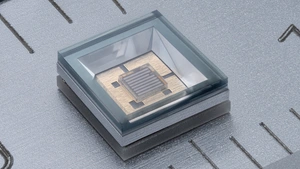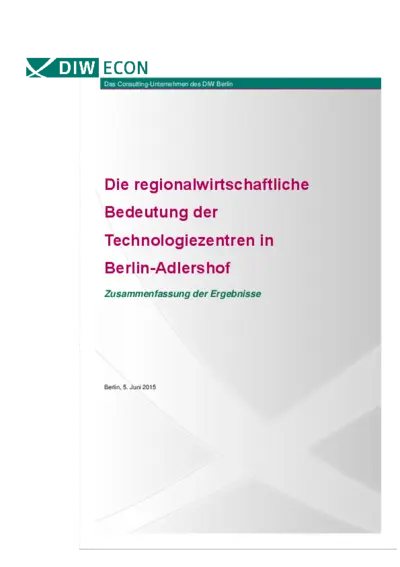Berlin Adlershof. Science at Work.
Discover the myth of Adlershof: founded in 1754, birthplace of German aviation, and site for research, film and television. Today the area has around 20,000 inhabitants, most located in the heart of the "old village". The Technology Park is close to the former airfield, now a landscape park.
The Berlin Adlershof Science City is one of the most successful high-technology locations in Germany—and Berlin’s largest media site. Renowned non-university research institutes, the natural sciences campus of Humboldt-Universität zu Berlin, 1,330 businesses and a rich history await you at Berlin-Brandenburg’s top Science, Business and Media hub. More than 34,000 people work and study in the science city of Adlershof, which covers an area of 4.6 km². Learn more about all the facts and figures…
News

Rydberg Photonics develops key components for quantum applications
FBH spin-off targets a new generation of compact, scalable, and robust photonic solutions:
A new era of compact, scalable, and robust photonic solutions is being ushered in by Rydberg Photonics GmbH, a Berlin-based spin-off from the Ferdinand-Braun-Institut (FBH). The company builds on FBH’s unique hybrid…

Novel technique shines light on next-gen nanomaterials
Team from HZB and Hebrew University uses spectroscopic microellipsometry to investigate how MXenes truly work:
Researchers have for the first time measured the true properties of individual MXene flakes — an exciting new nanomaterial with potential for better batteries, flexible electronics, and clean energy devices. By using…

“Jugend forscht” award winner completes research internship at IKZ
Internship was granted as a special prize at one of the regional competitions:
This summer, the IKZ was pleased to welcome Antonia Linke, a “Jugend forscht” award winner, for a two-week research internship. The internship was granted as a special prize at one of the state-level “Jugend forscht”…

FBH showcases latest R&D results at Photonics Days
Conference focusing on laser technology, microsystems technology and quantum technologies on 8 and 9 October in Adlershof:
For two days, experts from research and industry will meet in Berlin-Adlershof to exchange views on the latest trends in laser technology, heterogeneous integration, microsystems technology, and more. Once again,…
Events / Dates
Galerie „Alte Schule“ Adlershof
-
Leap Quantum Technology Hub & Events
-
Studio Berlin-Adlershof
WISTA Event Centre
Current journal issue






